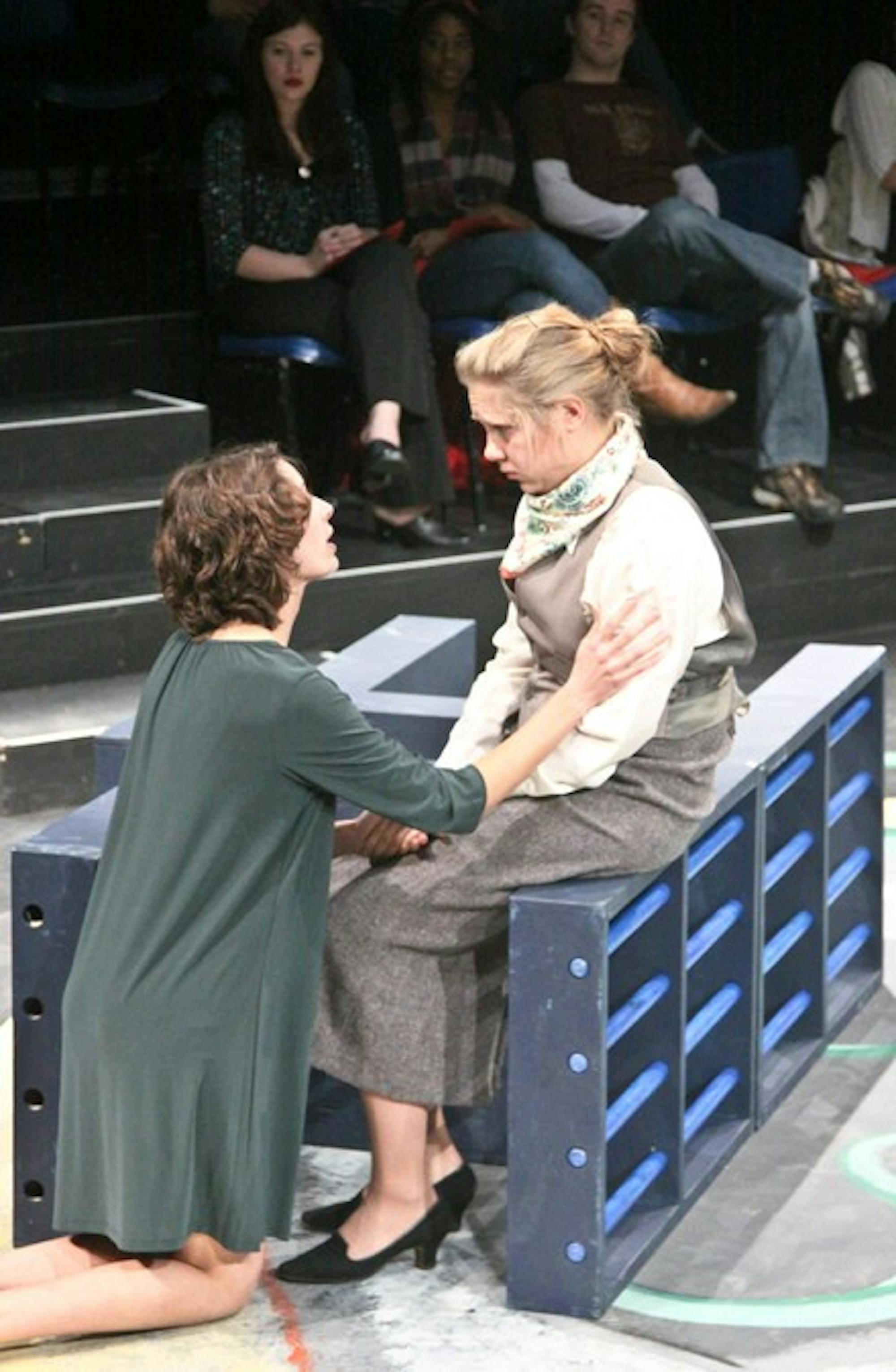Alexis Monroe '13 and Bill Calder '12 brilliantly acted out their characters' dueling approaches to fate and political philosophy in the Shakespeare Alley Showcase's performance of Jean Anouilh's 1943 adaptation of "Antigone" this weekend,
The student-produced play, directed by Sarah Laeuchli '11, was performed at the Bentley Theater in the Hopkins Center.
As in the original Greek tragedy, conflict arises in Anouilh's revisionist adaptation when Antigone played by Monroe attempts to bury her brother Polynices, who killed her other brother in a duel.
Antigone faces execution for this act because Creon, her uncle and the new king played by Calder, has declared Polynices a traitor and prohibited his burial.
Anouilh adapted "Antigone" in the context of the Nazi occupation of Paris. In his version, Antigone represents the French resistance and her uncle Creon the fascist German oppressors.
Fascism is clearly anathema today, but Monroe and Calder's superb performances left the audience torn between Antigone's emotional, fatalistic pleas and Creon's purely political appeals.
From first glimpse, Calder was upright and dignified, hands clasped behind his back, striding across stage with a steady and self-assured gait. Calder's performance was so composed, so understated but in control, that to question his character's veracity would have been counterintuitive his very presence inspired security and trust.
Monroe, a youthful Antigone who grew stronger and more mature as the play progressed, questioned Creon's political motivations.
In a particularly gripping scene, tension built as Antigone grappled with a question posed by Creon: Does she remember what her brothers were really like?
Calder, with a bitter spite well suited to the intensity of the moment, snarled that they were nothing more than "cheap gangsters" who left one another "mashed to a pulp" after their duel.
In the shocking climax of the scene, Calder struck an intense dramatic note in conveying Creon's admission that he merely chose the more presentable corpse to be buried and the dirtier one Polynices to remain unburied.
Calder approached Monroe in vivid frustration and tore a paper flower, a gift from Polynices to Antigone, from her hair.
Monroe bent down to pick up the flower from the ground, a brilliant gesture demonstrating Antigone's resilience even as the honor of her quest crumbled before her eyes.
Monroe portrayed Antigone's desperation and disillusionment with a remarkable combination of brute realism the pathetic, nitty gritty reality of her character's doomed existence ("death was her purpose," we are told) and poise.
Monroe's Antigone was defined by her innocence. Her naivete and fear were evident as her character's death drew near. Monroe's resolve, however, suggested that her character had come to accept death as her destiny. Theatergoers did not leave the Bentley with a certain understanding of which characters were in the right and which were wrong.
Calder and Monroe each fully immersed themselves in their characters and portrayed their differing perspectives with equal persuasion and resolve.
That there was no right answer, not any one message to grasp, made Antigone stimulating and powerful.
Shakespeare Alley Showcase productions, entirely directed and acted by students, are held every Fall, Winter and Spring terms.




![HONEYJOON_[Ines Gowland]_4.PNG](https://snworksceo.imgix.net/drt/7af2efc8-1bd1-4001-b754-e2718ce663b8.sized-1000x1000.PNG?w=1500&ar=16%3A9&fit=crop&crop=faces&facepad=3&auto=format)